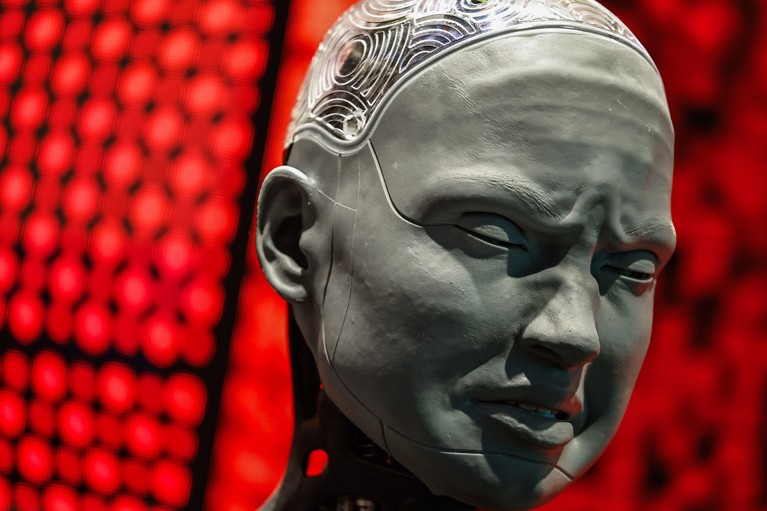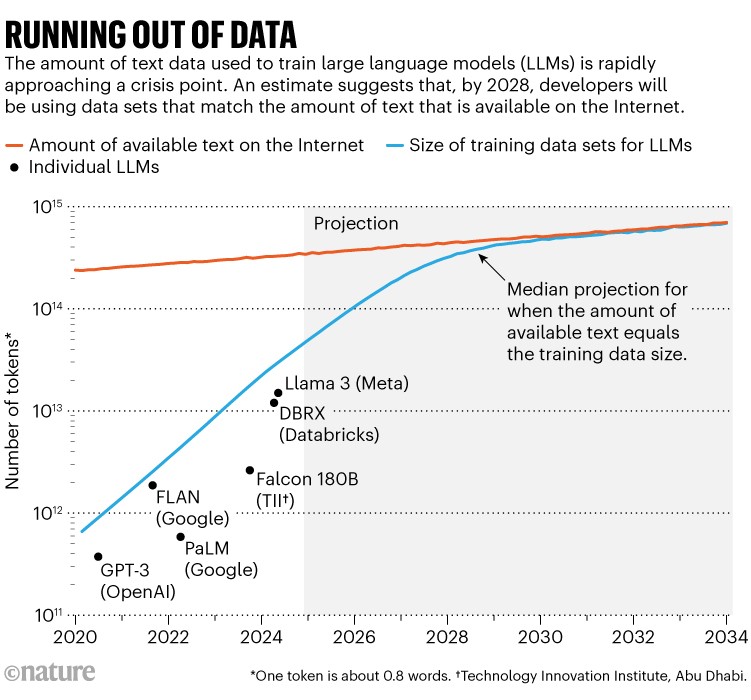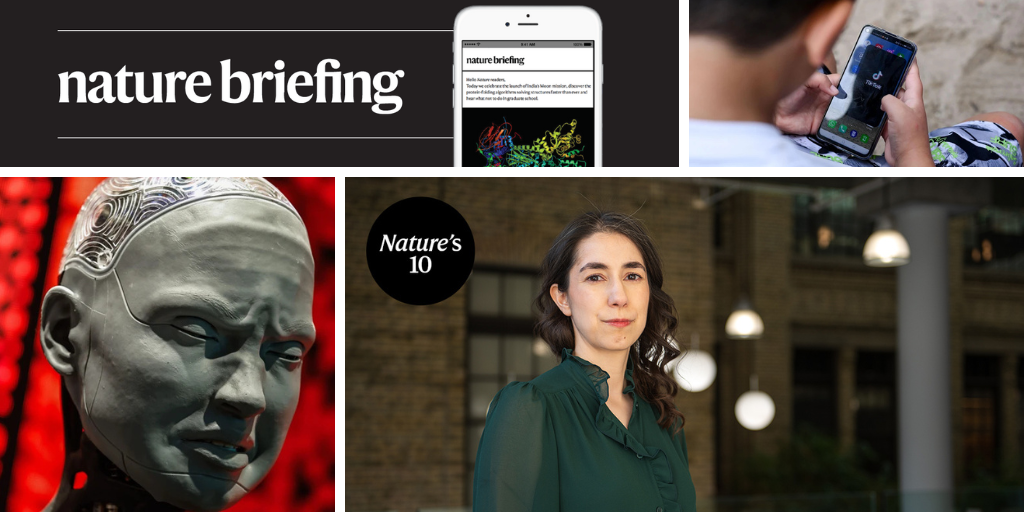Hello Nature readers, would you like to get this Briefing in your inbox free every day? Sign up here.

Some researchers worry that if AI systems become conscious and people neglect or treat them poorly, they might suffer.Credit: Pol Cartie/Sipa/Alamy
A group of philosophers and computer scientists are encouraging tech companies to assess their artificial intelligence (AI) systems for signs of consciousness, and to develop policies that safeguard the systems’ welfare should it ever happen. If they don’t do this, the group argues, companies risk causing AI systems to suffer. The notion has divided researchers — some think the idea is laughable, while others agree there’s no harm in planning. “Even an imperfect initial framework can still be better than the status quo,” says philosopher and report co-author Jeff Sebo.
Reference: arXiv preprint (not peer reviewed)
A year from now, children under the age of 16 in Australia will be barred from many social-media platforms — the highest minimum-age limit in the world. The government hasn’t said which platforms will be off-limits, but the legislation will include those that allow users to post content and interact with two or more users, such as Snapchat and TikTok. Many parents have applauded the approach, but some researchers question the law’s enforceability and say there is minimal evidence that it will keep children safe from online harm.
One year into the term of libertarian president Javier Milei, his agenda to slash Argentina’s deficit has meant that, as his administration’s slogan says, “there is no money” for science. The country’s main funder of research projects has been forced to come to a virtual halt, despite most of its money coming from international agencies. Government-funded scientists have seen salaries fall and many have recoiled from Milei’s rejection of climate science. The result is that the country is facing a huge brain drain. “With six more months like this, there will be nothing left” of the scientific community, says Mariano Cantero, the director of an institute in Bariloche.
Exposure to extreme heat could be linked to molecular changes that reflect accelerated ageing. Researchers looked at data from almost 4,000 people and cross-referenced their ‘epigenetic clocks’ — a collection of chemical modifications to DNA as people age — with temperature maps. The team found that people who lived in areas with more hot days had ‘older’ molecular ages than those who had experienced cooler weather. However, factors such as how long each person spent outside, and whether they had air conditioning, weren’t taken into account.
Features & opinion
The vast improvements in artificial intelligence have largely been a matter of scaling — researchers build a bigger neural network and they train it on more data. But progress might be about to hit a roadblock. A study published this year projected that by 2028, the size of a typical training-data set will equal all of the text that is publicly available online. Put simply, AI is about to run out of training data. Researchers now face a dilemma: find and use training data from untapped sources, such as instant messages, or change course to focus on smaller, more efficient models.
Reference: Proceedings of the 41st International Conference on Machine Learning paper

Source: Ref. 1
Endocrinologist Andrew Schally, whose most enduring legacy lies in his groundbreaking discovery of brain hormones that regulate the pituitary gland, has died aged 97. His decades-long rivalry with his former supervisor, neuroscientist Roger Guillemin, culminated in them sharing the Nobel Prize in Physiology or Medicine in 1977 (alongside medical physicist Rosalyn Yalow, who won for unrelated work). A child refugee from Nazi-occupied eastern Europe, Schally was particularly dedicated to advancing health care for veterans, write chemist Renzi Cai and endocrinologist Medhi Wangpaichitr.
Physicians are concerned about the growing number of parents giving their young children microbiome interventions such as probiotics. These live microorganisms are intended to improve health, but they are not regulated as drugs in the United States, and they can cause sepsis and increase the risk of mucosal illnesses in children. Faecal microbiota transplants (FMTs) approved to treat disorders such as inflammatory bowel disease in adults are largely unavailable to children, so parents sometimes turn to do-it-yourself options. “You may feel like you’re making people better, but you’re really taking a huge risk,” says gastroenterologist Stacy Kahn, who has treated children as young as one as the director of a FMT programme at a US children’s hospital.
This article is part of Nature Outlook: The human microbiome, an editorially independent supplement produced with financial support from Yakult.
Today I’m planning exactly how much swag I can stuff into my Xmas stocking by studying the long-sought solution to ‘the sofa problem’. In a preprint, mathematician Jineon Baek has shown that the maximum area of a sofa that can fit round the corner of a 1-unit-wide hallway is 2.2195 units. However, the maximum-sized sofa involved — as well as the biggest gift I can wedge into the toe of my stocking — is a slightly quirky shape, with a narrow curved seat and wide curved arms.
Please help this newsletter fit perfectly into your inbox — let us know where we can improve at [email protected].
Thanks for reading,
Flora Graham, senior editor, Nature Briefing
With contributions by Jacob Smith and Sara Reardon
Want more? Sign up to our other free Nature Briefing newsletters:
• Nature Briefing: Careers — insights, advice and award-winning journalism to help you optimize your working life
• Nature Briefing: Microbiology — the most abundant living entities on our planet — microorganisms — and the role they play in health, the environment and food systems
• Nature Briefing: Anthropocene — climate change, biodiversity, sustainability and geoengineering
• Nature Briefing: AI & Robotics — 100% written by humans, of course
• Nature Briefing: Cancer — a weekly newsletter written with cancer researchers in mind
• Nature Briefing: Translational Research — covers biotechnology, drug discovery and pharma


